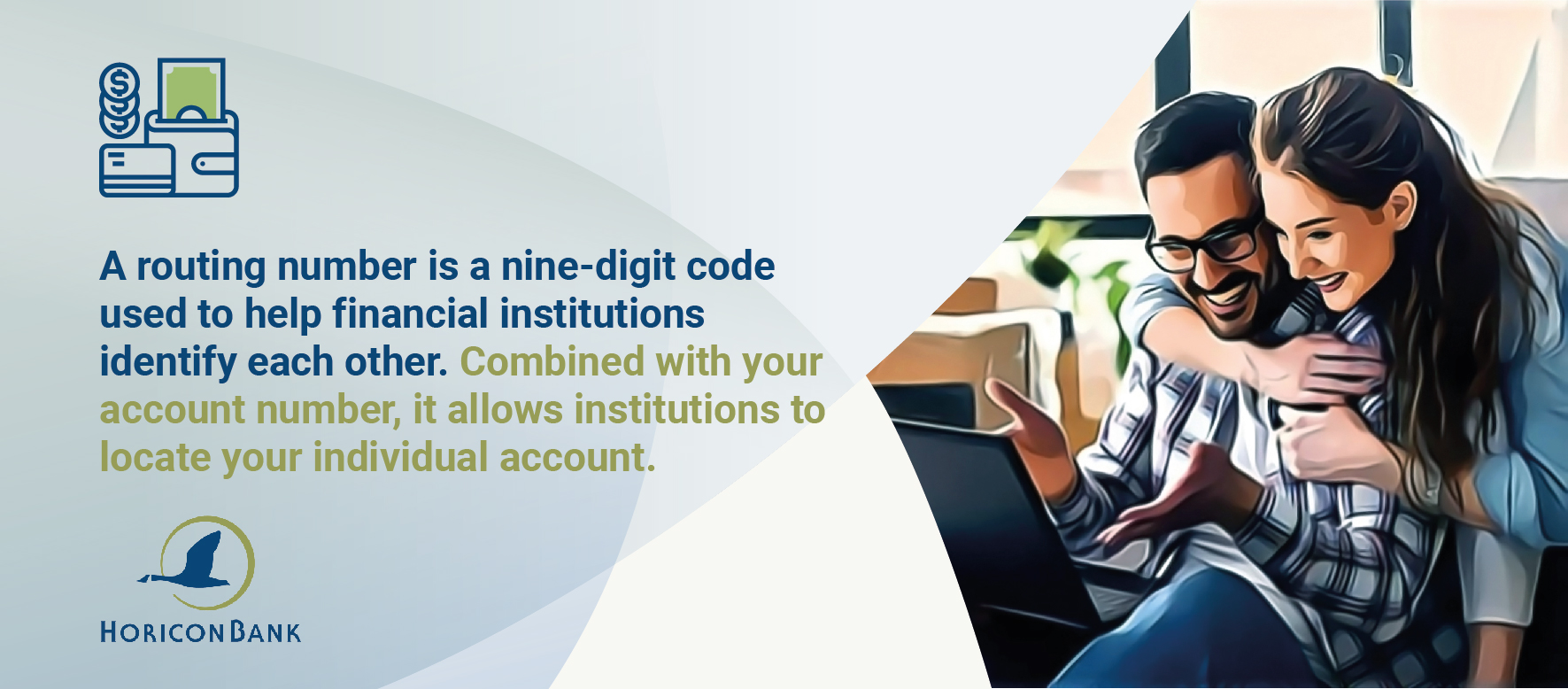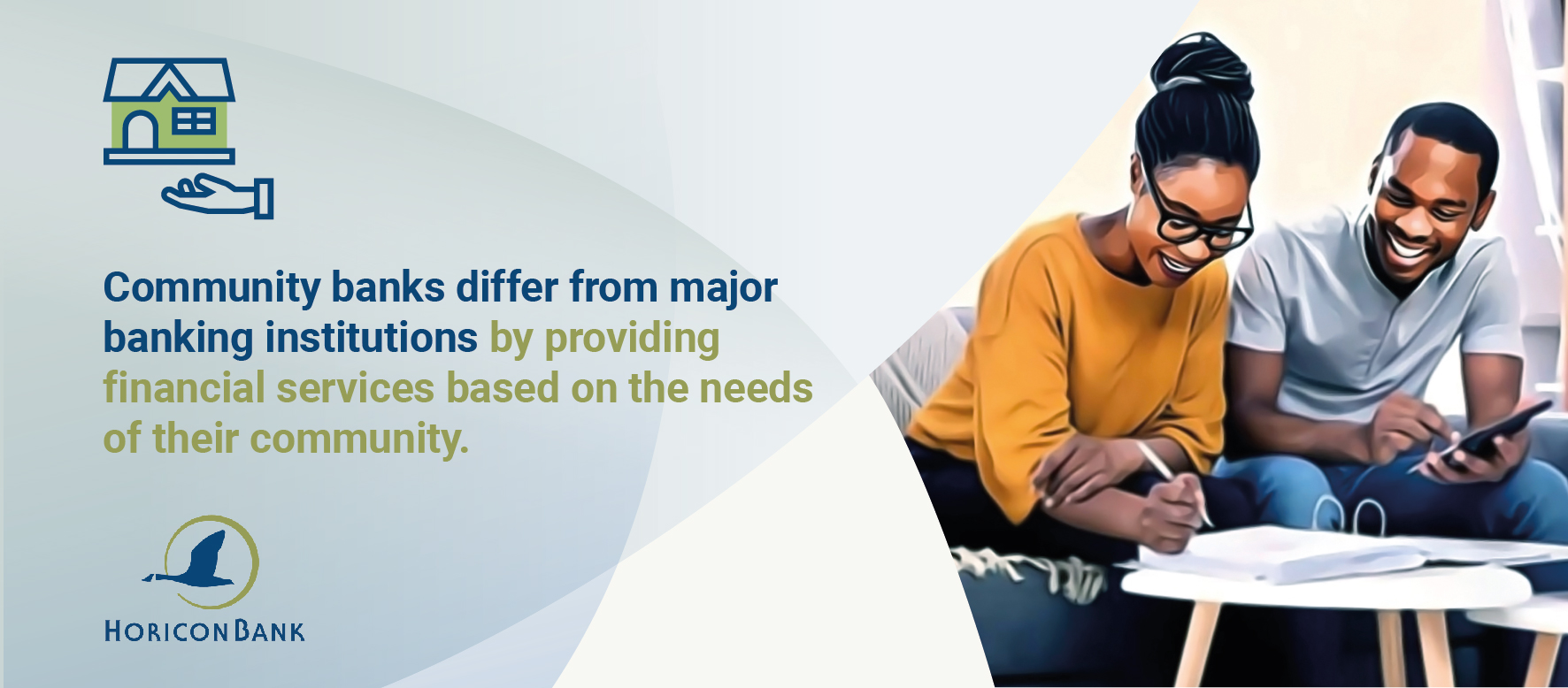Have questions about the state of banking? Check out our answers to 22 common banking questions for February 2, 2022!
1. What is a routing number and why is it important?
A routing number is a nine-digit code used by financial institutions to identify other financial institutions. It’s also known as a RTN (routing transit number) and an ABA (American Bankers Association) routing number. Combined with your account number, it allows institutions to locate your individual account. It can be found on your bank's website or on one of your checks. On your check, it will be the series of numbers in the bottom-left on the front of your check.

2. What's the difference between a bank and a credit union?
Banks and credit unions offer many of the same services, such as deposit accounts, personal loans, and home mortgages. The primary difference is that banks are for-profit and open to anyone, while credit unions are owned by their members and have certain requirements for membership.
3. How do bank loans work?
A loan is an agreement with a bank to borrow a specific amount of money. You must qualify and be approved in order to secure a bank loan. The loan is then repaid over the agreed-upon term in two parts; the first part pays back the principal, and the second part pays the interest.
4. How do banks make money?
Banks primarily earn money through the interest they charge on loans and credit card balances. Account fees also contribute to their income. Customer deposits in checking and savings accounts provide banks with the capital to offer loans, and they can only lend money up to the number of deposit funds they have access to.
5. How do Certificates of Deposit work?
You must choose a specific time frame to open a Certificate of Deposit (CD). Terms generally range from three months to five years, and the term length you choose can impact both rates and early withdrawal penalties, which are fees charged if you cash out a CD before the term ends. Generally, the longer the term, the higher the rate; and penalties tend to be bigger for longer terms.
6. How do banks determine interest rates?
While banks are free to set the interest rates they will pay for deposits and charge on loans, they also have to stay competitive with other financial institutions. Additionally, they look at the current benchmark rates and Federal policies when setting their rates. The U.S. Federal Reserve influences interest rates across the country by setting rates and bank reserve requirements, as well as buying and selling U.S. Treasury and other federal securities.

7. How do I know if my bank is open?
Click here to find out if your bank is open right now or if it’s a holiday when most banks are closed.
8. How do banks decide which loans to approve?
Banks use a number of factors to determine credit worthiness, including your credit score, debt to income ratio, outstanding debts, loan repayment history, and more. Overall, they want to see that you have a good credit history of repaying the debts you’ve taken on, as well as enough current income to afford the loan.
9. How do checks work?
A check is a document that orders your bank to pay a specific amount from your checking account to the person or company the check is issued to.
10. What's the difference between APR and APY?
APR (Annual Percentage Rate) and APY (Annual Percentage Yield) may sound similar, but they are not created equal. The primary difference lies with compounding interest. APR is the annual rate charged on debt or earned in a savings or investment account. On the other hand, APY accounts for compounding interest on your account.
11. What's the difference between a mortgage lender and mortgage broker?
A mortgage lender works within a bank or other financial institution and makes loans directly to you. A mortgage broker does not lend money; instead, they help you find a lender based on your needs. A broker may work with many lenders.
12. How does a personal loan differ from a mortgage?
The main difference is that a mortgage loan is specifically to purchase a home and is considered secure debt because the house is used as collateral for the loan. A personal loan, on the other hand, is typically unsecured and can be used for just about anything. Failing to pay this type of loan can cause a major hit to your credit score, making it harder to get loans in the future.

13. What's the difference between a home equity loan and a HELOC?
A Home Equity Loan is a term loan that pays a lump sum of money upfront and is repaid in regular monthly installments. Home Equity Loans are best for big projects when you know the total price tag in advance.
Home Equity Lines of Credit (HELOC) are a type of revolving credit account. HELOCs come with a credit limit that you can draw from when needed. HELOCs stay open for a certain period of time during which you can draw funds from the account, repay what you borrowed, and use the HELOC again.
Both Home Equity Loans and HELOCs are secured by the equity you’ve built in your home, so they offer lower interest rates than unsecured types of debt.
14. What is a community bank?
Community banks serve individuals and businesses in a specific geographic area. They are distinguished by their personalized service, competitive rates and convenient solutions, fast loan approval, and more. Most community banks funnel a portion of their profits back into the communities they serve.
15. Will a bank accept ripped or damaged money?
Banks can exchange some mangled money for customers. Typically, badly soiled, dirty, defaced, disintegrated and torn bills can be exchanged through your local bank if more than half of the original note remains. These notes would be exchanged through your bank and processed by the Federal Reserve Bank. However, the bank is under no compulsion to do this, and may refuse your request.
16. Can a bank close your account?
Your bank or credit union can freeze or close your account for any reason—and without notice—but some reasons are much more common than others, and you can take action to prevent or reverse the process. Lack of activity, suspicious activity, court orders due to liens or wage garnishments, can all be reasons for your account to be closed.
17. Can a bank refuse to open an account?
There are two primary reasons for this:
A history of writing bad checks: Some people are listed in a database of customers who have been identified as having mishandled checking accounts in the past, which means the bank or credit union is less likely to let them open a checking account.
Failure to provide adequate identification: A bank or credit union may refuse to open a checking account for someone who cannot provide the identification that it requests.
18. What is bank collateral?
Collateral is an item of value that a lender can seize from a borrower if he or she fails to repay a loan according to the agreed terms. One common example is when you take out a mortgage, in which case your home will act as collateral for the transaction. So, if you fail to meet the repayment terms of your mortgage, the bank has the right to take ownership of your home. The bank can then sell your home in order to recoup the money that it lent to you. Collateral acts as a guarantee that the lender will receive back the amount borrowed even if the borrower does not repay the loan as agreed.
19. Why do banks put holds on checks?
When you deposit a check, your bank may make a certain amount available right away. The rest will be available after a certain hold time during which your bank validates the check before cashing it completely.

20. Why aren’t banks open 24-7 in case I need access to my accounts?
Many banks have expanded their hours and drive-thru service to include some evening and weekend availability. And, even when the physical branch is closed, you can still access your accounts and perform certain transactions via mobile and online banking.
21. What happens to a bank account when someone dies?
If you are the executor of someone’s estate or an heir to the estate, you’ll need to produce a death certificate to get the account closed and liquidated. Some banks also allow account holders to name a beneficiary or set the account as Payable on Death (POD) or Transferable on Death (TOD) to a designated heir.
22. Can banks cancel pending transactions?
If you see a charge you don’t recognize or a merchant hasn’t issued a requested refund, you can ask your bank to dispute it on your behalf. Generally, a transaction must be completed before your bank can dispute it for you.